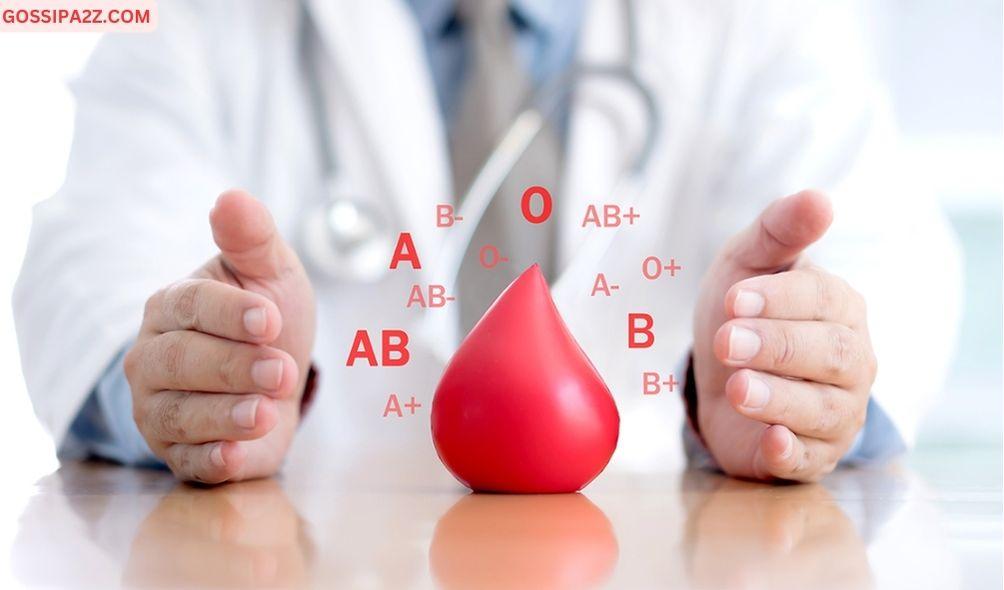10 Ways Your Blood Group Can Affect Your Health
There are many people out there clueless about their blood type.
While knowing your blood group can save your life in an emergency in case you are in sudden need of a blood transfusion, of much importance is that this knowledge will let you be aware if you are at risk for certain medical conditions.
1. Type AB, B, and A have an increased risk of heart disease
People whose blood type is A, B, or AB have an increased risk of heart disease and shorter life spans than those who have type O blood, according to a large study published in the UK’s BMC Medicine, a peer-reviewed journal.
After following more than 50,000 middle-aged and elderly people for seven years, on average, researchers found that as many as nine percent of cardiovascular deaths were attributed to having non-O blood types.
However, lifestyle factors such as weight, smoking, and diet, which, unlike blood type, are modifiable, have a much greater impact on heart disease.
2. Type AB, A, and B increase risk blood clots
Danish researchers studied how blood type interacts with a genetic predisposition for Deep-Vein Thrombosis (DVT), or blood clots in the lower legs that can travel to the lungs and become life-threatening.
After analyzing data on about 66,000 people over more than 30 years, they found that those with type AB, A, or B had a 40 percent higher risk of DVT than people with type O.
When the scientists did further analysis to see which factors have the biggest impact on DVT risk on a population level, they found that an AB blood type contributed to about 20 percent of blood clots; genetic mutations accounted for 11 percent, being overweight accounted for 16 percent, and smoking accounted for six percent.
3. Type O have low fertility
Women with this blood type were twice as likely to have blood levels of the hormone FSH high enough to indicate low ovarian reserve, a measure of fertility, according to a study published in UK’s Human Reproduction.
Researchers couldn’t say for sure why, though. Given that type O blood is the most prevalent, it doesn’t pay to worry too much about it.
Age is a far more important risk factor for fertility problems.
4. Type AB increases the risk of dementia and memory loss
People with type AB blood have an 82 percent greater risk for cognitive decline later in life, according to a study published in the Journal of Neurology, a peer-reviewed international journal.
That’s likely because they have larger amounts of what’s known as the Factor VIII protein, which helps with blood clotting.
ALSO READ:
- Exclusive: Ida Odinga’s 75th Birthday Party in Karen (Photos)
- FKF President Discloses Exact Amount Paid to Harambee Stars Players
- Gachagua’s Ally Senator John Methu Admits Ruto Might Win 2027 Elections
- Maraga Explains Why He Hasn’t Campaigned in Kisii Despite 2027 Bid
- Former MP Dies After Road Accident
Study participants with higher levels of this protein were 24 percent more likely to develop memory problems—regardless of their blood type—than people with lower levels.
Blood type, however, is far from the only, or even most important, factor that affects your risk for cognitive decline.
5. Types A and AB have increased risk of stomach cancer
Researchers have known for a while that people with blood type A are at risk for stomach cancer.
Bacterial infections from helicobacter pylori (H Pylori)are more common in patients who have type A blood, and these infections can cause stomach ulcers, and inflammations, and sometimes lead to cancer.
However, research published in BMC Cancer shows that people with blood type AB are also at risk.
Using genetic data from a large number of cases and controls, researchers found a link between both blood types and gastric cancer in Chinese populations. A review of 39 previous studies confirmed their findings.
6. Negative Rhesus (Rh) factor increases pregnancy risks
This has nothing to do with your “letter” blood type or the type determined by the ABO grouping system.
This has to do with what’s known as the Rhesus (Rh) factor, which determines whether your blood type is positive or negative. This could cause complications in pregnant women if the baby’s Rh blood type is different from the mother’s.
For instance, if the mother has a negative blood type and the baby has a positive one, the mother’s body can build antibodies against the baby’s blood type. Luckily, this doesn’t affect the baby, but it could hurt future pregnancies.
Fortunately, doctors can give pregnant women a shot early in their pregnancy which can prevent Rh-incompatibility problems.
7. Type O people have the lowest risk for stroke
People with a blood type other than O (the most common) have a higher risk of cardiovascular issues such as stroke, according to a study published in the Journal of Thrombosis and Haemostasis.
Biologists are still investigating why this might be; one possible explanation is that non-O blood types contain more of the Von Willebrand factor, a protein that has been connected to blood clotting and stroke in the past.
8. Type O people have a longer lifespan
Chances are higher you will live longer if you have type O blood. Experts think your lowered risk of disease in your heart and blood vessels (cardiovascular disease) may be one reason for this.
9. Type A are more prone to stress
Stress boosts your body’s level of cortisol, the stress hormone. People with type A blood tend to have more cortisol.
So you may have a harder time dealing with stressful situations.
10. Mosquitoes like Type O blood
If you find yourself scratching bug bites, your blood type might be to blame. In one small study, researchers found that type Os are up to twice as attractive to mosquitoes as type As, with type Bs falling somewhere in the middle.
10 Ways Your Blood Group Can Affect Your Health
